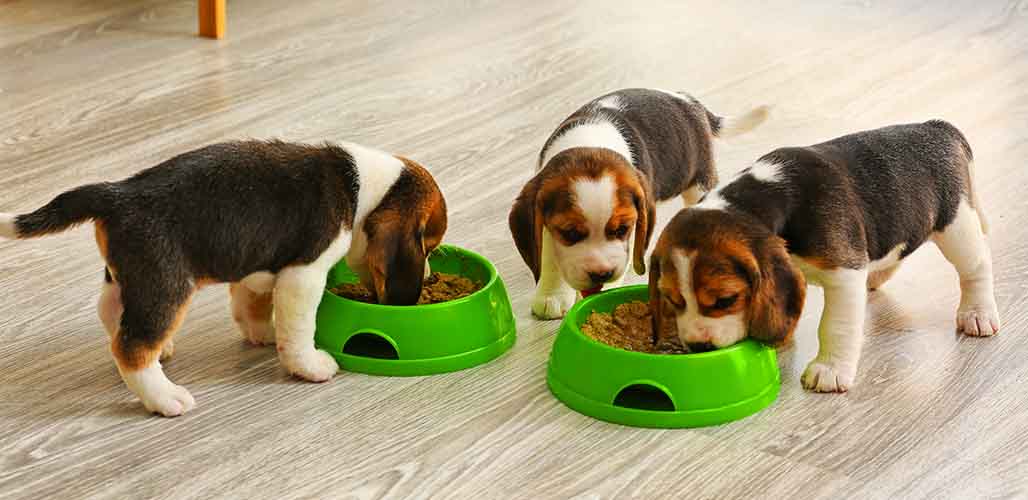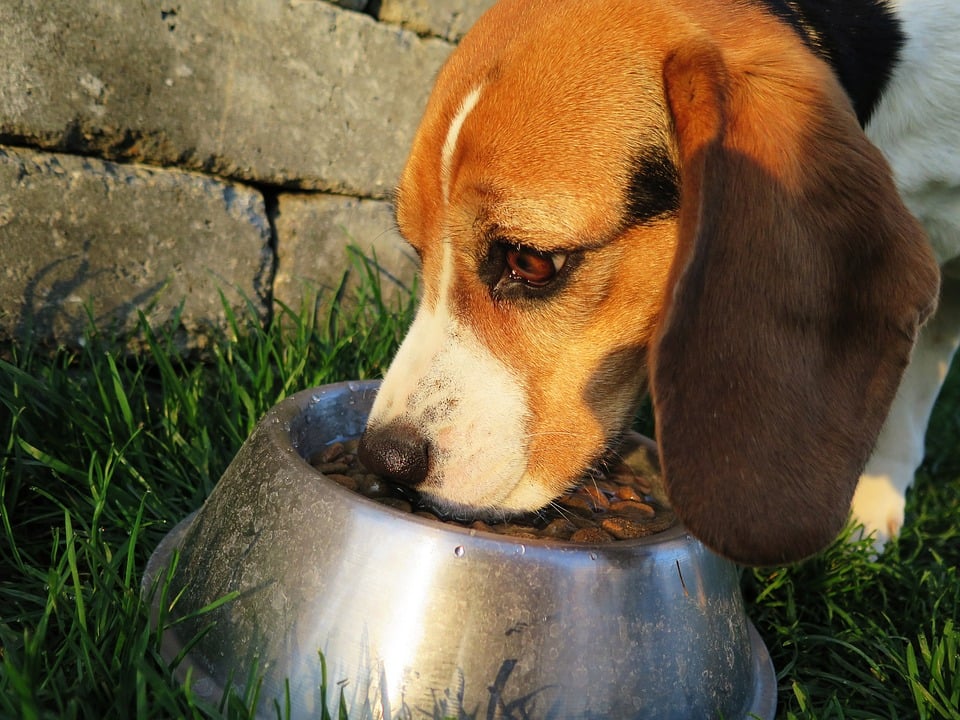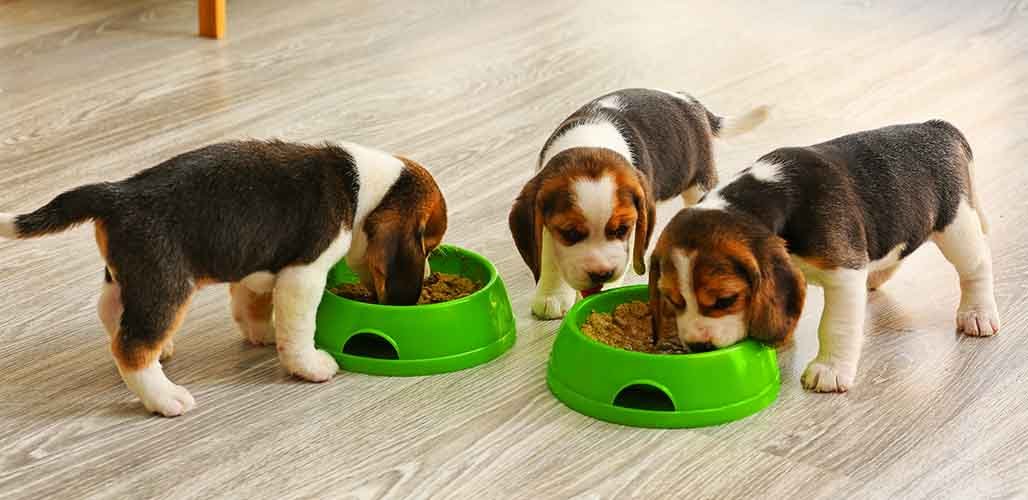When it comes to feeding your beagle, it’s important to consider their specific dietary needs. Did you know that beagles are prone to obesity? This can be attributed to their love for food and their slower metabolism compared to other breeds. So, what should beagles eat to maintain a healthy weight and overall well-being?
Beagles should be fed a balanced diet that includes high-quality dog food containing lean proteins, whole grains, and vegetables. This breed is known for their sensitive stomachs, so it’s vital to avoid feeding them table scraps or foods that may cause digestive issues. Additionally, portion control is crucial as beagles have a tendency to overeat. Monitoring their calorie intake and providing regular exercise can help prevent obesity and promote a healthy lifestyle for your beagle.
Beagles have specific dietary needs to maintain their health and wellbeing. A balanced diet for a Beagle should include high-quality protein sources, such as chicken or fish, to support muscle development. It’s also important to include whole grains and a variety of fruits and vegetables to provide essential vitamins and minerals. Beagles tend to have a hearty appetite, so it’s crucial to monitor their food intake to prevent obesity. Consult with a veterinarian to determine the appropriate portion sizes and food options for your Beagle.

Proper Nutrition for Beagles
Beagles are a popular breed known for their intelligence, energy, and friendly nature. To ensure they live a healthy and happy life, it’s important to provide them with the right nutrition. Feeding your beagle a balanced diet is essential for their overall well-being, growth, and maintaining a healthy weight. In this article, we will explore the dietary needs of beagles and what they should eat to thrive.
1. High-Quality Commercial Dog Food
The foundation of a beagle’s diet should be high-quality commercial dog food that is specifically formulated for their age, size, and activity level. Look for dog food that has real meat as the first ingredient, such as chicken, beef, or fish. Avoid dog food that contains artificial preservatives, colors, and flavors as these can be harmful to your beagle’s health.
It’s important to follow the feeding guidelines on the dog food packaging and adjust the portion size based on your beagle’s individual needs. Beagles are prone to obesity, so it’s crucial to monitor their weight and avoid overfeeding.
2. Balanced Homemade Diet
If you prefer to prepare your beagle’s meals at home, it’s important to ensure they receive a balanced diet that meets their nutritional needs. Consult with a veterinarian or a canine nutritionist to create a homemade diet plan that includes the right balance of protein, carbohydrates, fats, and essential vitamins and minerals.
A homemade diet for beagles may include lean meats, such as chicken or turkey, cooked vegetables like carrots and green beans, and whole grains like brown rice or quinoa. Supplements like fish oil or multivitamins may be recommended to ensure your beagle receives all the necessary nutrients.
3. Fresh Fruits and Vegetables
In addition to their regular meals, beagles can benefit from consuming fresh fruits and vegetables as healthy snacks. Fruits like apples, bananas, and blueberries are great choices as they provide natural vitamins and antioxidants. Vegetables like broccoli, sweet potatoes, and spinach are also nutritious options that can be cooked or served raw.
When giving your beagle fruits and vegetables, make sure to remove any seeds, pits, or toxic parts that may be harmful to their health. It’s important to introduce new fruits and vegetables gradually and monitor your beagle for any signs of digestive upset or allergies.
4. Healthy Treats
Treats can be a great way to reward your beagle for good behavior and provide extra nutrition. Opt for healthy treats that are specifically made for dogs and avoid giving them high-calorie, sugary, or fatty treats. Look for treats that are made with natural ingredients and provide additional benefits like dental health support or joint support.
Remember to give treats in moderation and consider them as part of your beagle’s daily calorie intake. Overfeeding treats can lead to weight gain and other health issues.
5. Water
Water is essential for your beagle’s overall health and well-being. Always make sure fresh and clean water is available to your beagle at all times. Beagles can be prone to dry skin, so it’s important to encourage them to drink an adequate amount of water throughout the day.
If you notice that your beagle is not drinking enough water, consult with a veterinarian as it may be a sign of an underlying health issue.
6. Foods to Avoid
While beagles can eat a wide variety of foods, there are certain foods that should be avoided as they can be toxic or harmful to their health. Some foods to avoid feeding your beagle include:
- Chocolate
- Grapes and raisins
- Onions and garlic
- Avocado
- Caffeine
- Alcohol
- Fatty or fried foods
These foods can cause digestive issues, organ damage, or even be fatal to your beagle. It’s important to keep these foods out of their reach and educate everyone in your household about the potential dangers.
7. Feeding Schedule
Establishing a regular feeding schedule is important for your beagle’s digestion and overall health. Most adult beagles do well with two meals per day, while puppies may require three to four smaller meals. It’s best to feed your beagle at consistent times each day and avoid leaving food out all the time, as it can lead to overeating and weight gain.
8. Regular Monitoring and Consultation
It’s important to regularly monitor your beagle’s weight and overall health to ensure they are getting the right nutrition. Obesity is a common issue among beagles, so keeping them at a healthy weight is crucial for preventing other health problems.
If you have any concerns about your beagle’s diet or nutrition, it’s always best to consult with a veterinarian or a qualified canine nutritionist. They can provide personalized guidance and recommendations based on your beagle’s specific needs.
9. Exercise and Weight Management
Proper nutrition goes hand in hand with regular exercise to maintain a healthy weight for your beagle. Beagles are an active breed that requires regular physical activity to prevent obesity and keep them mentally stimulated.
Engage in activities like daily walks, playtime, and interactive toys to keep your beagle physically and mentally stimulated. Regular exercise not only helps them burn off excess calories but also strengthens their muscles and maintains their overall well-being.
10. Age and Life Stage Considerations
The nutritional needs of beagles can vary based on their age and life stage. Beagles may have different dietary requirements as puppies, adults, and seniors. It’s important to adjust their diet accordingly and provide the necessary nutrients for their specific needs.
Puppies require a diet that promotes healthy growth and development, while adult beagles need a balanced diet to maintain their energy levels and overall health. Senior beagles may benefit from food formulated with joint support and lower calorie content to prevent weight gain.
Conclusion
Feeding your beagle a balanced and nutritious diet is essential for their overall health and well-being. Choosing high-quality commercial dog food, incorporating fresh fruits and vegetables, providing healthy treats, and monitoring their weight and nutrition are all important factors in ensuring your beagle stays healthy and happy. Remember to consult with a veterinarian or a canine nutritionist for personalized guidance based on your beagle’s specific needs.
Key Takeaways: What Should Beagles Eat?
1. High-quality dog food that is specifically formulated for beagles is the best choice for their nutrition needs.
2. Beagles should be fed a balanced diet that includes protein, carbohydrates, fats, vitamins, and minerals.
3. It is important to control the portion sizes and avoid overfeeding to prevent obesity in beagles.
4. Beagles may have specific dietary requirements or restrictions, so consult with a veterinarian for personalized feeding advice.
5. Treats should be given in moderation and should not exceed 10% of their daily caloric intake.
Frequently Asked Questions
Below are some common questions and answers about what a Beagle should eat:
1. What is the ideal diet for a Beagle?
A Beagle should have a balanced diet that includes high-quality protein, complex carbohydrates, and essential fats. This can be achieved through a combination of commercial dog food and fresh, whole foods. Look for dog foods that list meat as the first ingredient and avoid those with artificial additives or fillers. Additionally, incorporate lean meats, vegetables, and grains into their diet to provide necessary nutrients.
It’s important to consult with a veterinarian to determine the specific dietary needs of your Beagle based on their age, size, and activity level.
2. Can Beagles eat fruits and vegetables?
Yes, Beagles can eat fruits and vegetables as part of a balanced diet. They can benefit from the vitamins, minerals, and fiber present in these foods. However, it’s essential to feed them in moderation and introduce new foods gradually to prevent digestive upset. Some safe options for Beagles include apples, carrots, green beans, and sweet potatoes.
Always remove any seeds or pits, and avoid feeding them toxic foods such as grapes, onions, and garlic.
3. Should Beagles be fed a raw food diet?
A raw food diet for Beagles is a personal choice and should be done under the guidance of a veterinarian or a veterinary nutritionist. While some Beagle owners find success with raw diets, it’s important to ensure that the diet is nutritionally balanced and appropriate for their specific needs. Raw diets typically consist of raw meat, organs, bones, and vegetables.
When considering a raw food diet, it’s important to be aware of the potential risks associated with raw meat, such as bacterial contamination. Be sure to educate yourself on proper food handling and consult with a professional to make an informed decision.
4. Can Beagles have treats?
Yes, Beagles can have treats as part of their diet. Treats can be used for training purposes or as occasional rewards. However, it’s important to choose treats that are specifically formulated for dogs and avoid those that contain excessive amounts of sugar, salt, or artificial ingredients. Look for treats that are nutritious and made with high-quality ingredients.
Remember to take into account the number of treats given to prevent overfeeding and weight gain.
5. Is it necessary to feed Beagles a specific type of dog food?
While there are specific dog foods formulated for different breeds, it is not necessary to feed Beagles a breed-specific dog food. The most important factor is to choose a high-quality dog food that meets the nutritional needs of your Beagle. Look for dog foods that have undergone rigorous testing and meet the standards set by reputable organizations.
It’s always best to consult with a veterinarian to determine the most suitable food for your Beagle based on their individual needs.

Complete Beagle Feeding Guide (Puppies to adult beagles) | What To Feed | How Much to Feed
In summary, a Beagle’s diet should consist of high-quality dog food that is specifically formulated for their nutritional needs. It is important to provide a balanced diet that includes protein, carbohydrates, fats, vitamins, and minerals.
Beagles should also have access to fresh water at all times. Avoid feeding them human food, as it can be harmful to their health. Regular exercise and portion control are crucial to maintain a healthy weight for Beagles.
